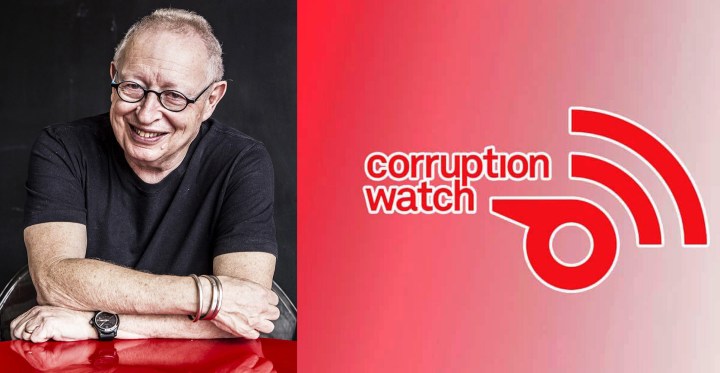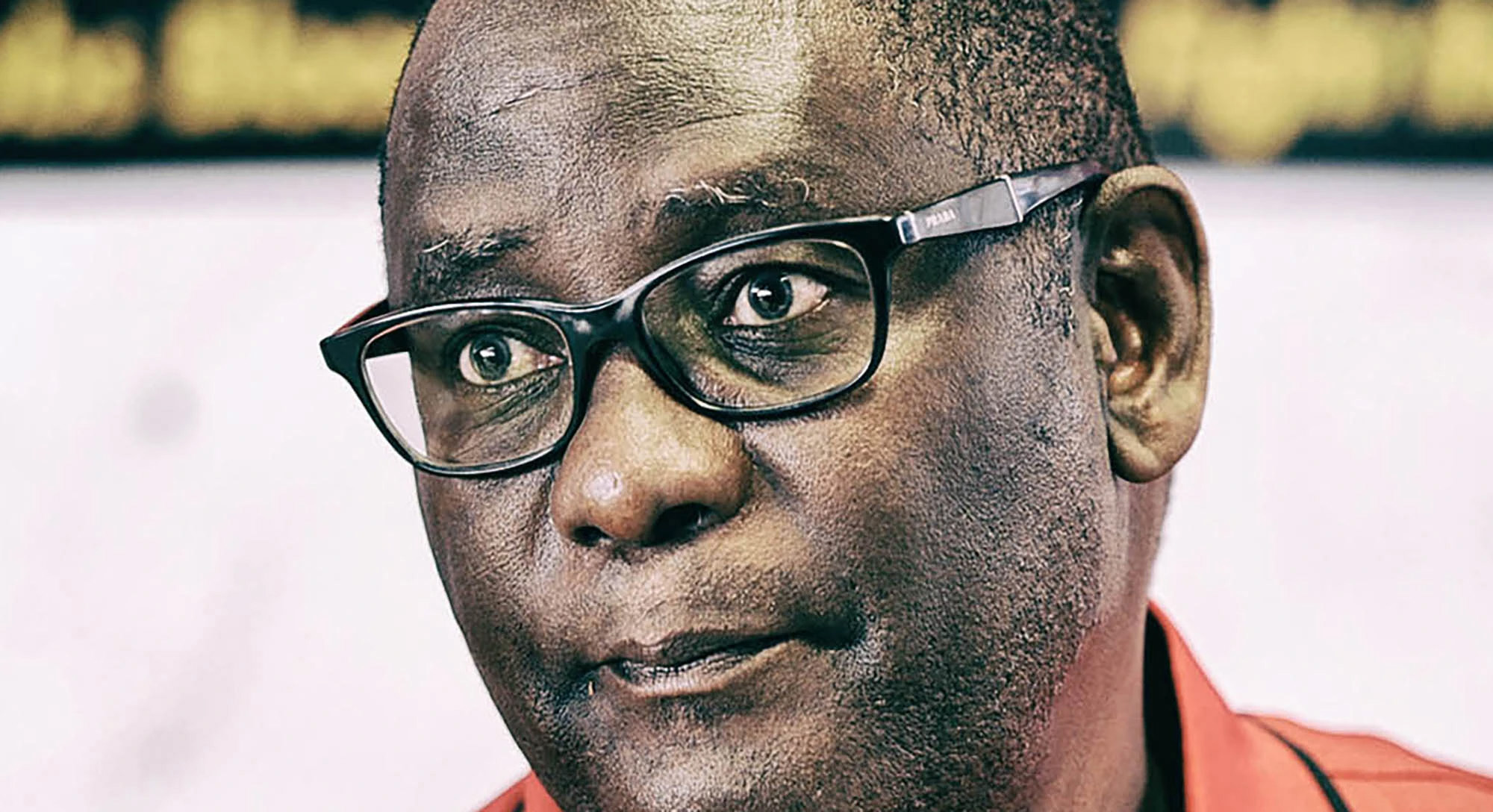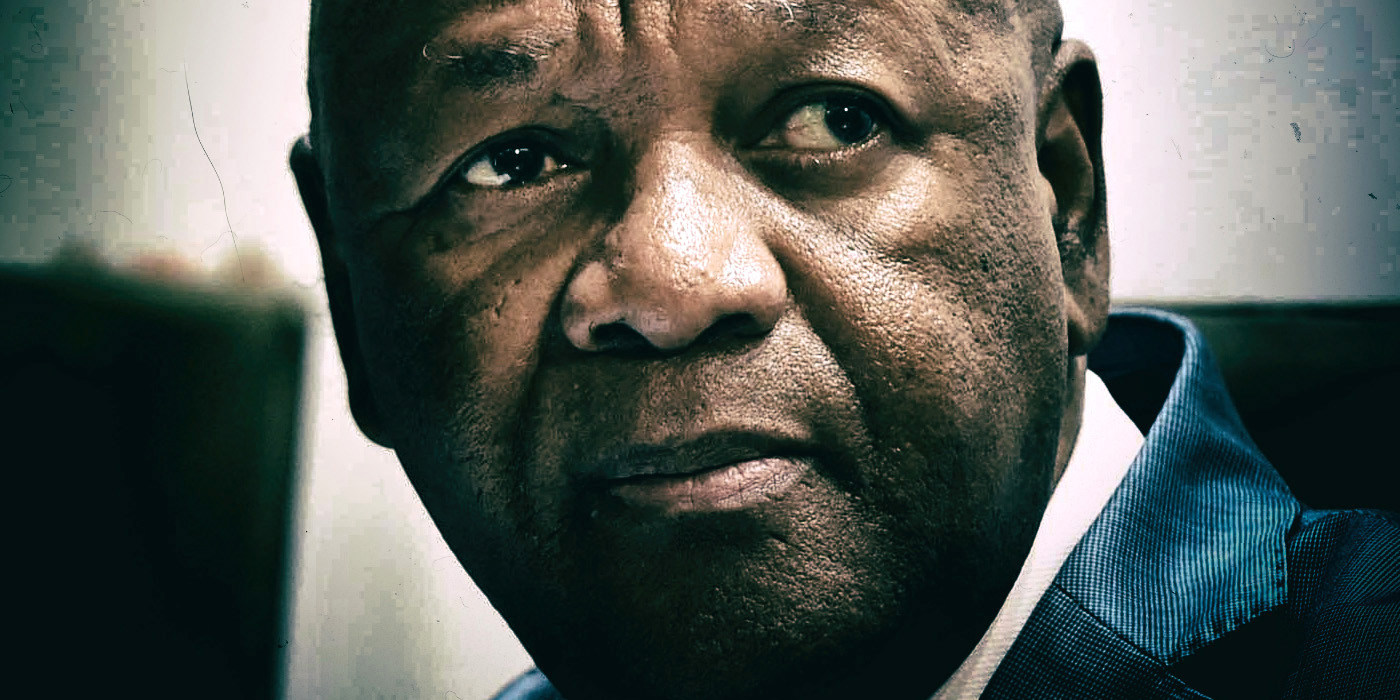CORRUPTION WATCH TURNS 10 OP-ED
David Lewis, founding executive director, reflects on a decade of activism

The 2021 Corruption Watch annual report, Pushing for Change, marks the organisation’s 10th anniversary, honours the role of whistle-blowers in exposing corruption and holding the corrupt to account, and recalls the highlights and challenges of the organisation’s journey so far.
Ten years ago, on 26 January 2012, Corruption Watch (CW) was launched publicly at Constitution Hill’s iconic women’s jail. Against the backdrop of this symbolic setting, an anti-corruption pledge was signed, with the keynote speaker, then justice minister Jeff Radebe, the first to sign it.
The organisation would soon enrol a diverse set of skills and experience, and build what founding executive director David Lewis describes as an outstanding spirit of true activism against a national problem that would undoubtedly take over the daily national discourse, with Corruption Watch as a trusted resource.
In a candid chat with senior journalist Moepeng Talane, Lewis reflects on his motivation for joining Corruption Watch, the scene set by a group of eager activists seeking change, and the challenges and triumphs of leading the organisation.
Corruption Watch was established a few years after a major change in the political climate of the country, and a change in government administration. Tell me what it was about that period that inspired its formation?
It was two or three years into the [former president Jacob] Zuma administration that we set up Corruption Watch, and it was undoubtedly inspired by a period when corruption was starting to get out of control. Even though we hadn’t yet reached the low point of the Zuma administration, it was clear this was something that needed to be fought.
The most direct inspiration came from the then general secretary of Cosatu, Zwelinzima Vavi, one of the few people in powerful positions in South Africa to speak out against corruption.
He had a vision to pursue complaints coming from his own members and the public, and he asked us, a couple of his old trade union comrades, to see whether we could help investigate these reports.

The most direct inspiration came from the then general secretary of Cosatu, Zwelinzima Vavi, who was one of the few people in powerful positions in South Africa to speak out against corruption. (Photo: Gallo Images / Daily Sun / Jabu Kumalo)
You had had a successful term at the helm of the Competition Tribunal at this point. Where did the energy and inspiration come from to be part of something like this?
I’d finished with the Competition Tribunal about two years prior to this, teaching at GIBS [Gordon Institute of Business Science] and also writing a book about my experience on the tribunal, which was published in 2011.
I was not very happy doing what I was doing. I mean, I’ve always been an activist, so I like being involved in activist work, and even though GIBS is a politically active school, it still didn’t really satisfy me.
One day my wife bumped into [advocate] Adila Hassim, and when Adila asked how I was, she said I was very unhappy not being an activist. Adila said: “I have an idea, why not set up an anti-corruption organisation?” Vavi was also encouraging us to do so. So I met with both of them and then with Mark Heywood and later Peter Harris, and the latter helped us set up Corruption Watch. We started raising money around mid-2011. That’s how Corruption Watch came to be, I grabbed the opportunity as soon as it arose. I was very excited to work with people who regarded activism highly.
I can imagine you probably didn’t think it was going to take up 10 years of your time.
I didn’t — only when we began staffing the organisation did I realise it was going to be a much more successful project than I initially thought. I didn’t think it would make quite the waves it has. It became a very different organisation from what was initially envisaged — I realised it was never going to perform the primarily investigatory task that Vavi saw for it, but it had other very valuable tasks.
What was your best first big lesson as executive director?
We launched in 2012 and I was very struck by the enthusiastic response from a number of quarters, including those in the world of anti-corruption. We had Jeff Radebe open the event.

Ten years ago, on 26 January 2012, Corruption Watch (CW) was launched publicly at the Constitution Hill’s iconic woman’s jail. Against the backdrop of this symbolic setting, an anti-corruption pledge was signed, with the keynote speaker of the day — then justice minister Jeff Radebe — being the first to place his signature. (Kopano Tlape/ GCIS)
There seemed to be a general spirit behind an organisation like that, which was very encouraging. It came from the government, within Chapter 9 institutions, Cosatu and other organisations, and from the media and the public at large. So that was striking. I knew that once that spirit was shown, if we were able to produce the goods, then this was going to be a long-haul situation.
I didn’t expect it to grow so big, and I didn’t expect it to be involved in such a huge range of activities… we brought in Bongi Mlangeni when we realised public communication was going to be a prominent part of our existence, and she took it on with a vengeance. We were also employing interesting people, the public was interested in us, so those were the first indications that this was going to be for the long haul.
And your fondest memory from the 10 years?
I really liked the people we were employing. I had come from a very productive environment at the Competition Tribunal, and then there’s an intervening year or two at GIBS which was also quite productive. We had a very good atmosphere in the office. I liked that everybody backed the independence of the organisation, because that very quickly became a big deal for us, and I was very pleased with that.
I was very impressed with the interest and enthusiasm of young people for an organisation like this. It told me we had struck a chord. That was the most pleasurable part of that early period.
What was it like watching the organisation grow?
You know, I am much better at small organisations. Although I started off working at a trade union, there were few staff, although there was a large membership. Then I worked in the research unit at UCT for a while, then at the Competition Tribunal, which had about 12 or 14 staff.
But it was also partly my ambition that turned it into such a large organisation. Obviously that came with tremendous headaches — such as raising money for salaries every month — but it was definitely my growing ambition for what this organisation could achieve that made it expand as quickly as it did.
Those were my initial thoughts, some trepidation and fear, but other thoughts were that we needed a strong and well-funded organisation like Corruption Watch to take on this important task. I was pleased that we had the diversity of skills and people from different backgrounds to enable us to take on this problem which was increasingly tilting at the government.
Now you’ve got people with diverse skills, who are enthusiastic and want to really make the organisation work. But what price are you paying as an anti-corruption activist?
First, it did put me at odds, sort of, with some of my friends, in the sense that they had got involved in business themselves and BEE deals and things were looking a bit dodgy with some of them. Thankfully, I never had to investigate them — although I did take issue with some of the things they were doing — but we were never called upon to question our independence or my independence.

The 2021 Corruption Watch Annual Report, Pushing for Change, marks the organisation’s 10-year journey with its whistle-blowers, and honours the role they have played in exposing corruption in the country and holding the corrupt to account. (Image: Adobe Stock)
From the days that I was involved in the trade union movement and right through the Competition Tribunal and some of the big research projects that I ran, I recognise that if you mount a big campaign directed at something like corruption, or if you’re involved in something like competition work, which is also not completely intuitive, you’ve got to have the capacity to explain what you’re doing and to account for what you’re doing.
So I’ve always paid strong attention to the media because ultimately it’s the way to get to the public. Right from the day of the launch, we put a lot of effort into media. And I’m pleased we did because I think it gave us some protection. It also got the public knowing what we were doing, and approaching us. People were approaching us with donations, some wanted to work with us, and some wanted to let us know what they thought we should be doing. The media became used to treating us as their go-to organisation for comment on corruption.
I think over the years CW has been able to navigate some difficult topics because it’s always been invested in the ongoing conversation about corruption, regardless of the course it took. Would you agree?
That insight of yours is very important because I think that’s the reason we succeeded with the media, especially because we weren’t willing to comment on just anything related to our field.
But we also educated ourselves, you know, this wasn’t just spin-doctoring. It was done from some base of experience and knowledge. And I think in that regard the decision to invite people to submit their knowledge about corruption to us was very important. One of our best examples is the schools campaign work.
We could have gone on radio or television and said “we know that there’s a lot of corruption in schools”. But when you can say you’ve received 179 reports of corruption in schools, and this is the shape it takes, you gain much more credibility. The media treated us as a resource because we gave quality content.
As a country, are we on the right course in the fight against corruption? The Zondo Commission makes very important recommendations for structural, systemic and even legislative changes to allow some accountability.
Our legislative framework is fairly standard and can be improved in some regards. The procurement legislation in particular can be improved, because the BEE component is not a standard component.
We started with how the political climate of 2012 inspired the creation of CW. Let’s compare that with the present. Are we winning the fight against corruption?
I think our orientation and perspective have changed a lot during the course of our work, even if some of our activities haven’t, and that is largely a consequence of the change in administrations. We changed course, even if our activities remained broadly similar. It meant we could go and speak to the mining minister about the mining report, for instance, or to other leaders of government. That has changed us a lot, even though it hasn’t changed our fundamental activities.
Surely there remains a threat of being co-opted, or seen to be co-opted, by the government?
There is a danger of that, of us being used as part of the face of the [state’s anti-corruption] campaign, despite it not according with the way we would do things. It’s a way of getting co-opted, no doubt. We’ve had to make some difficult decisions in that regard. The National Anti-Corruption Strategy is a case in point. Right at the beginning of it, during the Zuma administration, there was an attempt to co-opt us into that, although not a serious attempt. There was no way a project like that would get off the ground under Zuma, and we would have raised eyebrows if we’d endorsed that.
There have been times when I’ve worried about how closely we work with the government. It’s something I would never have dreamed of in my trade union days. But you have to appreciate that it’s not an easy task. We’re questioned about our silence on some aspects of corruption and I welcome that, it shows that people are at least thinking about whether we’re being co-opted. We are not, and we need to maintain that.
On that note, what other advice do you have for your successor, Karam Singh, and the rest of the team?
On the activism front, I think a lot of energy should be put into sectoral forums that are emerging, largely under the leadership of the Special Investigating Unit: the health sector, infrastructure build and local government anti-corruption forums. We must also nurture our relationship with the unit.
We should be producing a lot of well-written and clear reports.
It’s pretty much more of the same. DM/MC
Read the first article on youth activists in Corruption Watch here and find the annual report here.
Moepeng Talane is a senior journalist at Corruption Watch.
[hearken id=”daily-maverick/9303″]




















 Become an Insider
Become an Insider
Comments - Please login in order to comment.